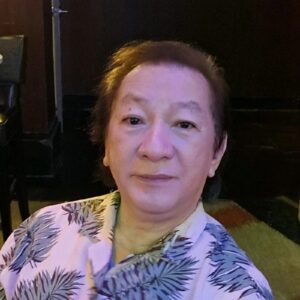Zoilo ‘Bingo’ Dejaresco III l January 8, 2025 l Business Mirror

SOMETHING does not seem right with some Philippine methods of governance.
For instance, Congress is primarily tasked with legislation. Although Congressmen and Senators have the “power of the purse” in passing the national budget for the President’s final approval, the budget implementation lies with the Executive and its various line agencies.
Strangely, however, after the signing of the P6.326-trillion General Appropriations Act (GAA) by President Ferdinand R. Marcos Jr., legislators and some officials seemed to have usurped the implementation of some items.
While the “4Ps” aid for the very poor appears to have been decreased, now the so-called AKAP (“Ayuda sa Kapos ang Kita” program) has been allotted P26 billion almost exclusively to be dispensed by legislators in this election year. Even though the Department of Social Welfare and Development (DSWD) said last Friday that only the DSWD frontliners will physically distribute the remaining AKAP funds, recipients will still need a recommendation from legislators to qualify. So, who are they kidding?
This is aside from the fact that Congress had doubled its own budget to P33.7 billion and that of the Senate to P14 billion (from the National Expenditure numbers), which stayed on even after the president vetoed some controversial items. It was only one senator, Risa Hontiveros, who did not sign the budget bill for the president’s final scrutiny.
Baguio City Mayor Benjamin B. Magalong, a major founder of the Mayors for Good Governance, laments with the hundreds of mayors in the country, that the legislators are now lording over about 80 percent of the distribution of the three government aid programs: AKAP; the AICs (Assistance to Individuals in Crisis Situation); and, the TUPAD (“Tulong Panghanap Buhay sa Ating Disadvantaged/Displaced Workers”).
Local government units (LGUs) scramble for the remaining 20 percent—at the mercy and grace of the legislators (the LGUs have to know and court them) when it is the LGU social workers who have the wherewithal to know who in the communities need assistance the most.
The legislators reportedly do not even give the LGUs the names of the beneficiaries who received the dole-outs—opening the possibility of giving duplication aid to the legislators’ supporters and those they are courting for votes—to the exclusion of all others.
Isn’t this a legalized form of vote-buying and bribery in aid of reelection or election? Add to this the billions in MOOE (maintenance and other operating expenses) of Congress that are liquidated by mere certification—and one begins to see the light of why legislators figuratively kill and betray another to get those coveted electoral seats.
Moreover, out of the P288 billion inserted by Congress into the DPWH budget, the President only vetoed P26 billion, mostly the corruption-prone flood control projects. The P262 billion remainder is technically still a form of “pork barrel” retained by the president.
Thus, a columnist was right in saying that the recent presidential veto was a lame attempt to deodorize the smelly, pork-laden budget—like an old-fashioned underarm freshener brand some of us know from the past. But, we say that pork by any other name still smells of lard. Cosmetic reform is the best way to call the exercise.
Likewise, though no fault of their own, the LGUs are also unwittingly becoming a party to a recent abominable directive of the national government to put an end to the laudable DSWD project called the “Malasakit” program, which combined the programs of the medical and hospital needs of indigents of the DSWD, the Philippine Health Insurance Corp., the Philippine Charity Sweepstakes Office and the Department of Health.
We are witnessing the depletion of medicines and services in public hospitals and, meanwhile, we see the institution of the P74-billion allocation to the MAIP (medical assistance to indigent patients) with a horrible twist. Instead of the hospitals administering the benevolent Malasakit program, every sick Tom, Dick, and Harry will now have to go through the corridors of power starting from the barangay captain to the mayors to get the proper “endorsement” to avail of the medical ayuda.
How tempting, indeed, can this mechanism be used by LGU officials to bribe themselves to election using government funds?
The best way to counter this—since these evil fixtures are already in place—is for enlightened citizens, the churches, academe, nongovernment organizations, and civic organizations to educate the public at large that these monies are coming from our taxes or if not from loans (which we will all eventually pay) and not from the sincerity and big hearts of the bribers. And therefore, we do not have to give them our votes.
Since there is already a law against vote-buying and vote-selling and some Anti-Vote buying movements have mushroomed in some localities, the devious public officials still found these admittedly ingenious ways to bribe people and bring themselves to power by legal means.
But aren’t these forms of bribery and vote buying just the same?
***Zoilo P. Dejaresco III, a former banker, is a financial consultant and media practitioner. He is a Life and Media member of the Financial Executives Institute of the Philippines (Finex). His views here, however, are personal and do not necessarily reflect those of the Finex and the BusinessMirror. Email dejarescobingo@yahoo.com. Photo from Pinterest.

